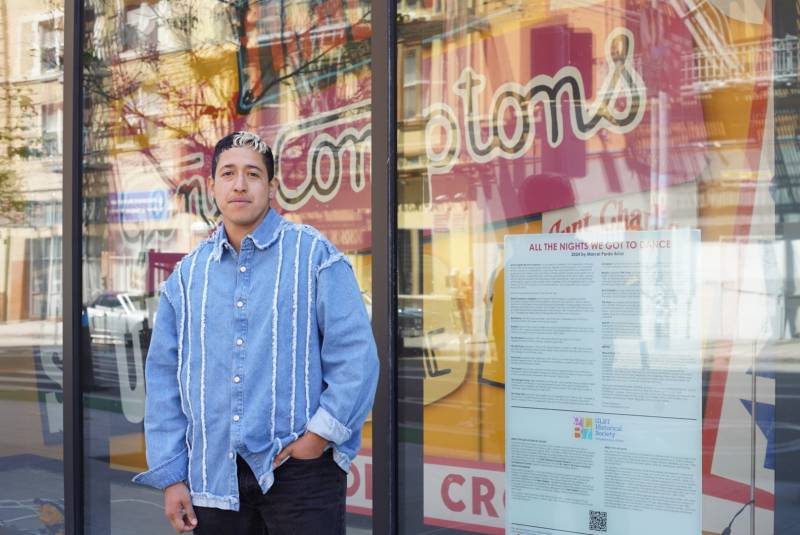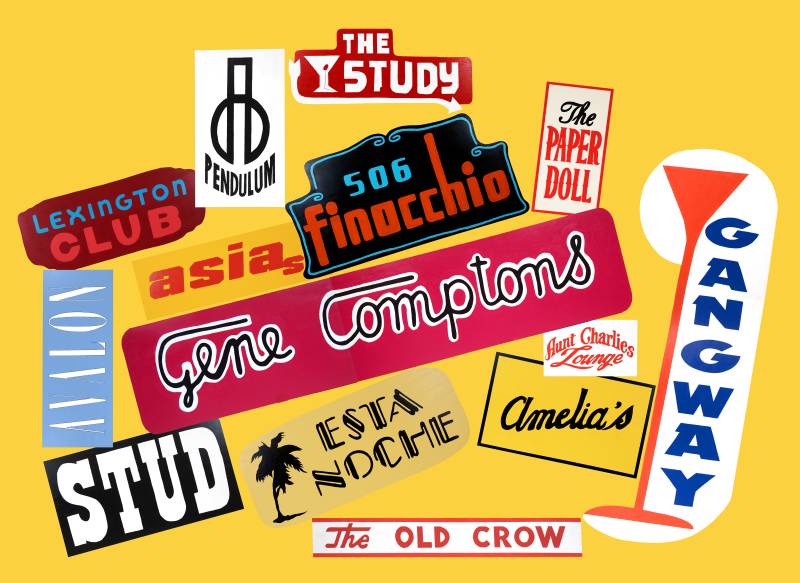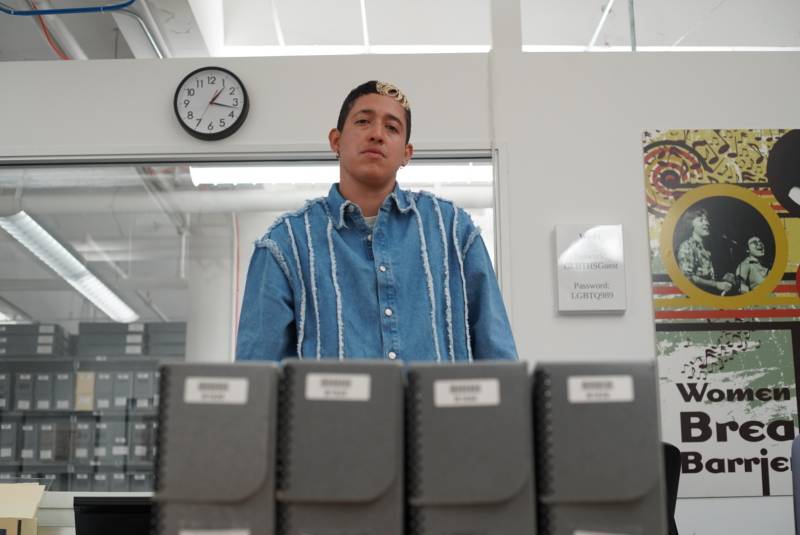Human memory can be triggered by certain smells, sounds or even a photo. It’s funny how the mind works; one small symbol can lead to the rehashing of feelings from years ago.
The latest work from artist Marcel Pardo Ariza urges people to take a trip down memory lane by using images of gone-but-not-forgotten bar signs. Pardo Ariza is clear: these bars served more than booze. They were sanctuaries for folks from San Francisco’s queer and trans community, and should be celebrated as such.


All The Nights We Got To Dance is a site-specific installation in the ground-floor window of The Line Hotel in San Francisco’s Transgender Cultural District. A sunset orange backdrop is covered in hand-painted wooden replicas of bar signs, such as The Lexington, Esta Noche and Finocchio’s — a club credited as one of the earliest incubators of drag shows in the U.S.



